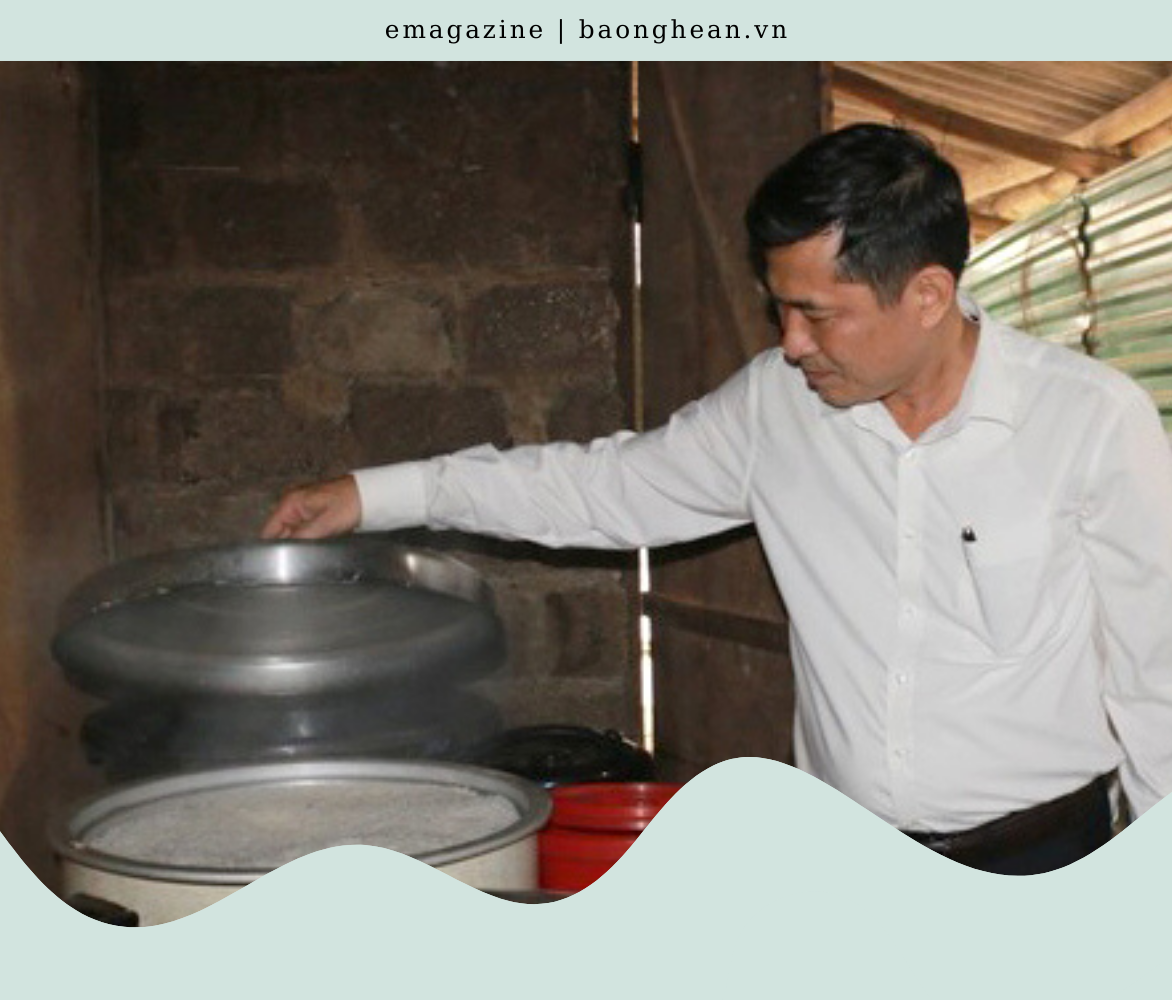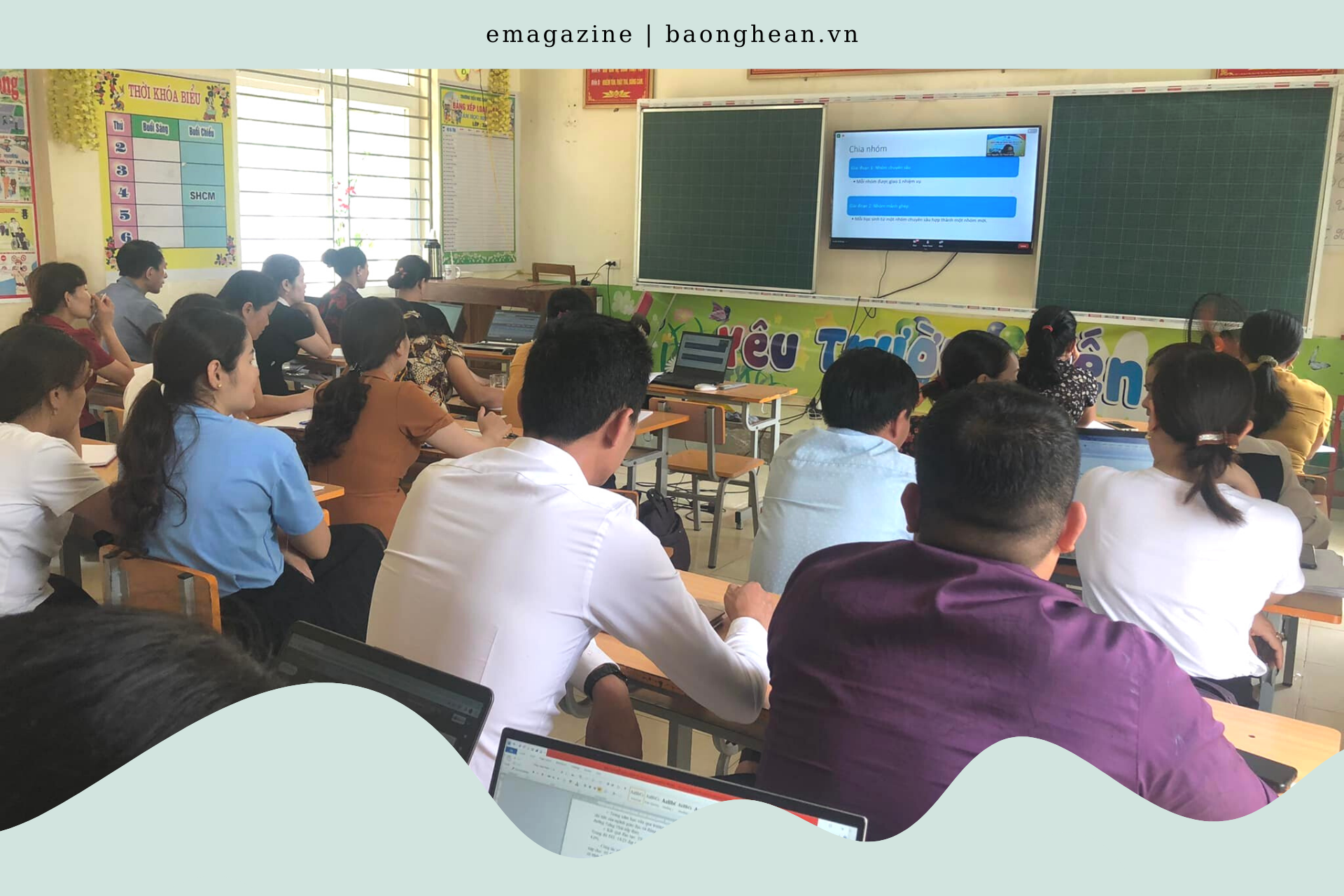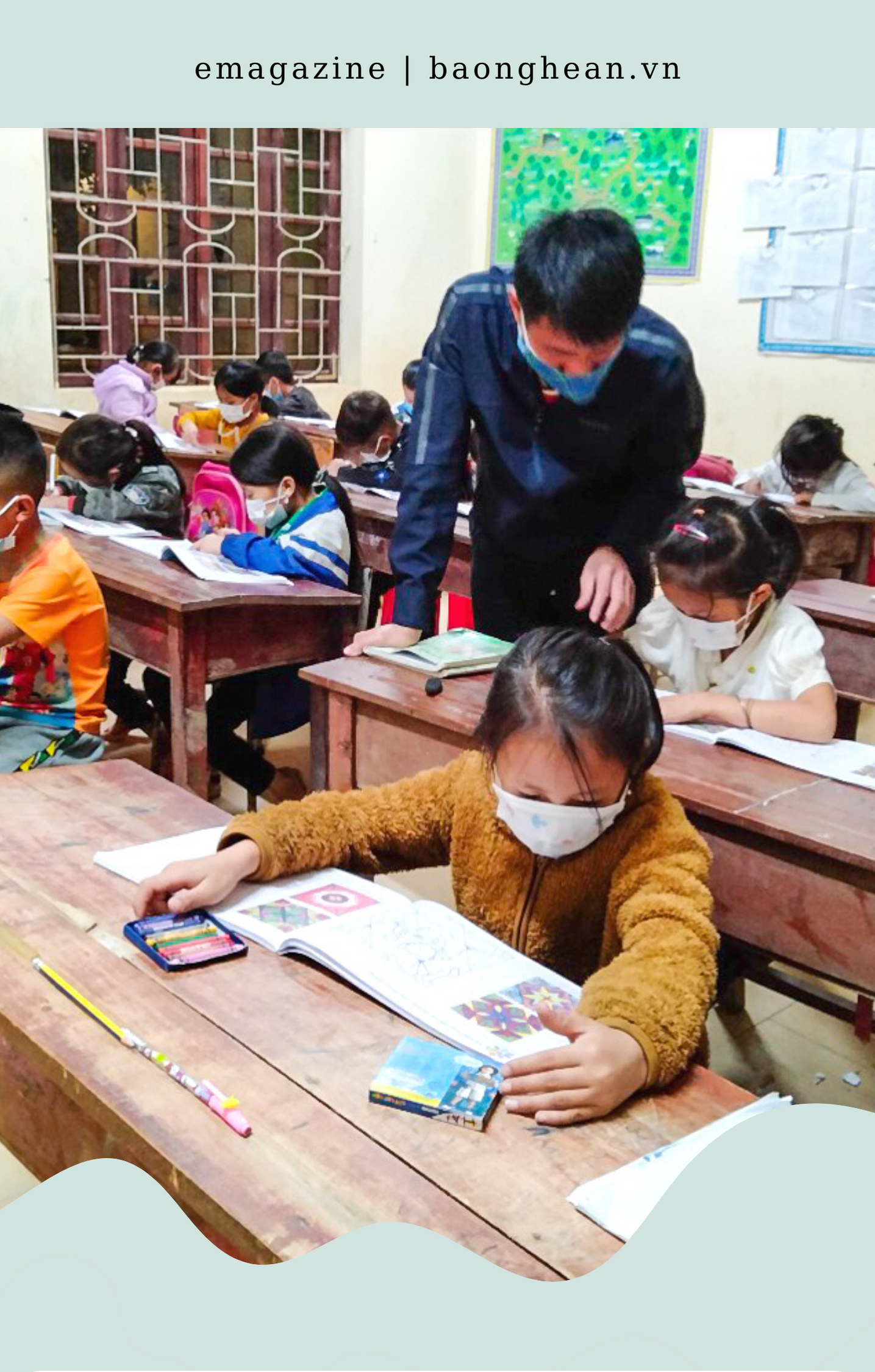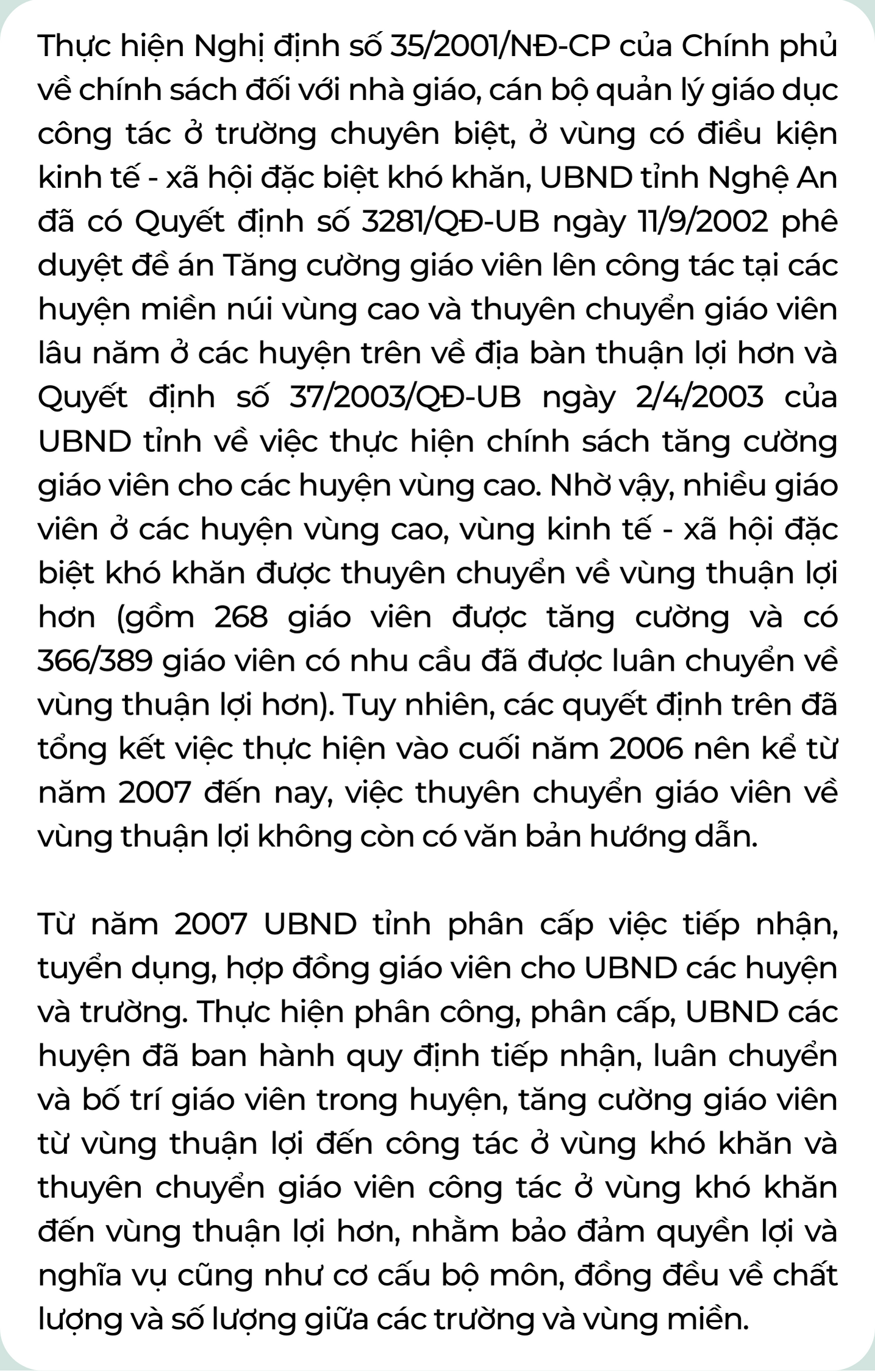

Reporter: Sir, Nghe An is a large province with 11 mountainous districts, the student population in these localities is quite high. To meet the teaching and learning needs, in recent years many teachers from the lowlands have volunteered to teach in the highlands. Can you assess the role of teachers in the education of the mountainous areas of Nghe An?
Prof. Dr. Thai Van Thanh:Developing education in ethnic minority and mountainous areas is extremely important in improving the quality of education, creating a breakthrough in fundamental and comprehensive innovation in education and training of the province, meeting the requirements of improving people's knowledge, developing the quality of human resources, and promoting socio-economic development in ethnic minority and mountainous areas.

Nghe An is the province with the largest natural area in the country (16,490 km2), with three distinct ecological regions: mountainous, midland and coastal plain. Of which, mountainous areas account for 83% of the territory, with diverse and complex terrain and are divided by systems of hills, rivers and streams. In 217 communes and towns in the mountainous areas, there are 55 communes in area I (communes in the initial stages of development), 76 communes in area III (communes with special difficulties), conditions for socio-economic development and the lives of ethnic minorities in the mountainous areas still face many difficulties.
With these characteristics, compared to other localities, education in the mountainous areas of Nghe An faces many difficulties and that partly affects the quality of teaching and learning in schools. However, in recent years, thanks to the attention and facilitation of the government, party committees at all levels and people, the education and training of ethnic minority and mountainous areas of the province has had many positive changes. The rate of students attending school, universal education, school and classroom facilities have reached the average level of the whole province. The quality of education has been gradually improved, together with the whole sector, education in the ethnic minority and mountainous areas of Nghe An has completed the education development plan, contributing with the Party Committee and people of all ethnic groups in the province to basically complete the socio-economic development goals.

Contributing to that success, there is also a great role of teachers because we know that the teaching staff determines the quality of education. We acknowledge and express gratitude, especially to those from the lowlands who come to contribute to education in the mountainous areas. There have been thousands of teachers with love for their students in the mountainous areas, love for their profession, they determined to stay, settle down and start a family, stay and be attached to the mountainous areas. We should be grateful, grateful and pay more attention to this team.
PV: Sir, in recent years, a reality that has occurred in many mountainous districts is that many teachers have asked to go to the lowlands for various reasons, one of which is to stabilize their lives. As the head of the education sector, what do you think?
Prof. Dr. Thai Van Thanh:The transfer of teachers from one district to another is under the authority of the Chairman of the People's Committee of the district.
Among the teachers who requested to transfer, we sympathize with teachers who have special circumstances, such as illness, disease, difficult family life, elderly parents, single parents or other special circumstances, forcing them to return. I think that when teachers have decided to request to transfer jobs, they are also very heartbroken because they have lost their feelings for their children and the lands they have been attached to for a long time.

In recent years, Nghe An has seen a phenomenon of teachers asking to go back to the lowlands. We sympathize with these special circumstances and it is up to the district authorities to decide. However, there are teachers who have not contributed much and asking to return should be considered. For example, there are teachers who have been in the mountains for a few years and then asked to return but were not allowed, at least that teacher has contributed for more than 5 years, for example. Recruitment is done by each district, the Chairman of the District People's Committee sets the regulations. Therefore, when teachers agree to go to the mountains to work, they must accept the district's regulations.
Reporter: Obviously, the teachers moving to the lowlands is causing difficulties for schools and localities. So, in your opinion, what solutions do localities and the education sector need to have to retain these teachers?
Prof. Dr. Thai Van Thanh:Nghe An is lacking over 7,000 teachers at all levels and grades, not just in mountainous districts. However, in mountainous districts, recruitment will be more difficult, especially in specific subjects. In the coming time, after having the staffing quota, the sector will consult with the Department of Home Affairs to prioritize recruiting enough teachers for localities, in which priority will be given to arranging enough teachers for mountainous districts.
For teachers who have been working for a long time in mountainous districts, the Department of Education and Training is also developing a project to develop education in ethnic minority and mountainous areas in Nghe An province, period 2022-2025, oriented to 2030 and the sector is also researching and proposing to the Provincial People's Committee to have a policy mechanism in the project to develop education in ethnic minority and mountainous areas. In particular, attention is paid to the team of teachers who come to work in the mountains from far away, or teachers of special subjects, not only in terms of material but also in terms of spirit to encourage them to stay and contribute to education in the mountains.

Currently, the National Assembly has also approved the Master Plan for Socio-Economic Development of Ethnic Minority and Mountainous Areas for the 2021-2030 period. Therefore, we hope that, from this plan, the Ministry of Education and Training will propose to the Government appropriate policies for each province, city, and region to contribute to the development of education and training, improve the quality of human resources, and improve the lives of teachers in mountainous areas.
I think, teachers in the highlands must settle down to have a career. First of all, the salary system and now the State basically cares for teachers in the highlands, cares for those working in especially difficult areas.
In addition, the Government must also provide an open mechanism for localities to develop specific mechanisms and each locality will have its own appropriate mechanism. In addition, the Central Government can study financial support for provinces with specific mechanisms to support spiritually, living conditions, and public housing. Localities also need to have land support policies, similar to how we support land for families with meritorious services to the country. From this concern, a favorable working environment will be created so that they can work with peace of mind in the mountains.

PV: On the eve of the new school year, do you have any message for teachers working in difficult mountainous areas?
Prof. Dr. Thai Van Thanh:Once you have chosen the teaching profession and have gone to the mountainous areas, you must truly love the profession. We know that teachers in the mountainous areas work very hard and over the years, teachers have sacrificed, contributed, and devoted themselves to the cause of education, the future of the younger generation, and the children of ethnic minorities in the mountainous areas with a spirit of dedication and devotion. From this foundation, I hope that teachers will continue to love their students more and feel secure in staying at work. If you are dedicated, then be even more dedicated, devoted, and devoted. The industry always follows, is grateful, grateful, and ready to accompany and stand side by side with the difficulties of teachers in the mountainous areas.
PV: Thank you, Professor Thai Van Thanh!

